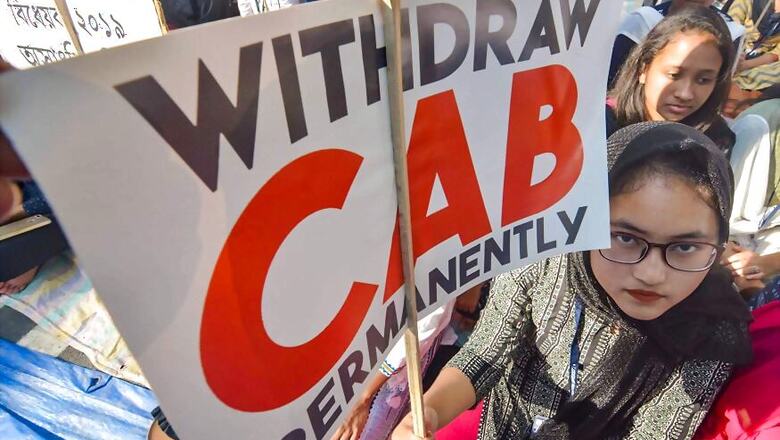
views
New Delhi: As a growing number of state governments refuse to implement the contentious Citizenship Amendment Act on the grounds that it is an attempt by the ruling BJP to strip the country of its secular credentials, the Centre has pointed out they do not have a choice in the matter as the matter of citizenship comes under the union list.
“The states have no powers to deny implementation of a central law which is in the Union List," a senior home ministry official told CNN-News18 after chief ministers in West Bengal, Kerala and Punjab declared they would not implement the law in their respective states.
The official pointed out that in the seventh schedule of the Constitution, there are three lists. While the states have a say on matters in the state and concurrent lists, any legislation passed by the Parliament on a subject in the union list will have to be implemented throughout the country.
Defence, External Affairs, Railways, Naturalisation and Citizenship are some of the subjects in the union list, which has 97 items.
While Bengal CM Mamata Banerjee had voiced her opposition to the Citizenship (Amendment) Bill even before it was passed by the Parliament on Wednesday, her counterparts in Kerala and Punjab – Pinarayi Vijayan and Amarinder Singh respectively - on Thursday said they will not allow the law be implemented in their state.
The controversial bill, which for the first time offers a legal route to gain Indian citizenship on the basis of religion, had received the presidential nod at midnight on Thursday and came into force with immediate effect.
Terming the bill as an attack on the secular and democratic character of India, Kerala Chief Minister Pinarayi Vijayan said that his state has no place for such an "unconstitutional" law.
The law makes it easier for non-Muslim migrants from Bangladesh, Pakistan and Afghanistan to obtain Indian citizenship. It has been accused by rights groups and opposition parties of being discriminatory and violating the constitutional right to equality.
The President’s assent for it was given despite massive protests in the northeast, particularly Assam, which has prompted the governments there to impose curfew in several towns and cities and call in the army to control the situation.
Amarinder Singh said the Congress, with the majority it commands in the Punjab assembly, will block the "unconstitutional" bill from being implemented in the state. "This law is of a very divisive nature. Mamata Banerjee has repeatedly vowed that she would not let the law be implemented in Bengal and on Friday announced she would hold a mega protest rally in Kolkata on December 16.
Madhya Pradesh and Chhattisgarh governments have also indicated that they would not implement the law, but officially they said they would back the position taken by the Congress high command.
Sources in the MP government said the states are aware of the constitutional position, but argued that the role of the state can't be negated completely. "Civil disobedience is a tool available to us," an official said.
As per the records available with union home ministry, Rajasthan, West Bengal, Assam, Delhi and Punjab have the majority of persecuted Hindus, Sikhs, Jains, Buddhist, Christians and Parsis from Afghanistan, Pakistan and Bangladesh. Apart from Assam, all of them are opposition-ruled states.




















Comments
0 comment